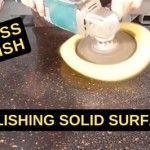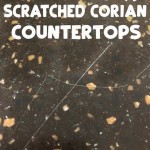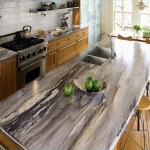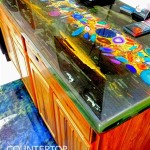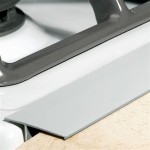The Definitive Guide to Choosing the Best Cleaner for Kitchen Countertops
Kitchen countertops are a central hub in any home. They endure a constant barrage of spills, crumbs, grease, and general wear and tear. Consequently, selecting the right cleaner is crucial not only for aesthetics, but also for maintaining hygiene and preserving the countertop material. The “best” cleaner is not a universal solution; it depends largely on the countertop material itself, the nature of the mess, and individual preferences regarding ingredients and environmental impact.
Choosing the incorrect cleaner can have detrimental effects, potentially causing discoloration, etching, scratches, or even structural damage to the countertop. This article provides a comprehensive overview of various countertop materials and the recommended cleaning products and practices for each, enabling informed decisions when selecting the best cleaner for your specific needs.
Understanding Common Countertop Materials and Their Cleaning Needs
Different countertop materials possess varying degrees of porosity, durability, and sensitivity to chemical agents. Understanding these characteristics is paramount in selecting an appropriate cleaner. This section explores some of the most common countertop materials and their specific cleaning requirements.
Granite: A popular choice for its durability and aesthetic appeal, granite is a natural stone that, when properly sealed, is relatively resistant to stains and scratches. However, granite is porous, and acidic cleaners can etch the surface. Therefore, neutral pH cleaners are generally recommended. Avoid using vinegar, lemon juice, or bleach on granite countertops.
Quartz: Engineered quartz countertops are composed of quartz crystals bound together with resin. This composition makes them non-porous and highly resistant to stains and scratches. While quartz is generally more forgiving than granite, harsh chemicals and abrasive cleaners should still be avoided. A simple solution of soap and water is often sufficient for routine cleaning.
Marble: Another natural stone, marble is known for its elegance and timeless appeal. However, it is significantly more porous and softer than granite, making it highly susceptible to staining and etching. Marble requires gentle, pH-neutral cleaners specifically formulated for natural stone. Immediate cleanup of spills is essential to prevent permanent damage. Avoid all acidic cleaners and abrasive pads.
Laminate: Laminate countertops are a cost-effective option made from layers of plastic laminate bonded to a particleboard core. They are relatively durable and easy to clean but can be susceptible to scratches and heat damage. Non-abrasive cleaners and soft cloths are recommended. Avoid harsh chemicals and abrasive scrubbers, which can damage the laminate surface.
Butcher Block: Butcher block countertops are made from solid wood, offering a warm and natural aesthetic. They require special care to prevent water damage and bacterial growth. Regular oiling is essential to maintain the wood's integrity and protect it from moisture. Clean with a mild soap and water solution, and dry thoroughly after each use. Avoid harsh chemicals and allow the surface to air dry completely before applying oil.
Concrete: Concrete countertops are durable and customizable but require sealing to prevent staining and water absorption. Similar to natural stone, concrete is porous and can be damaged by acidic cleaners. Use pH-neutral cleaners specifically designed for concrete surfaces. Regular resealing is necessary to maintain its protective barrier.
Solid Surface (e.g., Corian): Solid surface countertops are non-porous and seamless, making them resistant to stains and bacteria. They are relatively easy to clean with soap and water or a mild all-purpose cleaner. Abrasive cleaners should be avoided, as they can dull the surface. Minor scratches can often be buffed out with a specialized cleaner and a non-abrasive pad.
Tile: Tile countertops offer design versatility but can be challenging to maintain due to grout lines. Grout is porous and prone to staining and mildew growth. Tile surfaces can be cleaned with a variety of cleaners depending on the material (ceramic, porcelain, etc.). Grout should be cleaned regularly with a grout cleaner and sealed periodically to prevent staining.
Exploring Different Types of Cleaners and Their Applications
Beyond the countertop material, the type of cleaner plays a crucial role in effectively removing dirt, grime, and stains. Different types of cleaners are formulated with specific ingredients to address various types of messes. Understanding the properties of these cleaners will help informed decision-making.
All-Purpose Cleaners: These cleaners are designed for general cleaning tasks and can be used on a variety of surfaces, including laminate, solid surface, and sealed granite. However, it is essential to check the label to ensure the cleaner is safe for the specific countertop material. Avoid using all-purpose cleaners on marble or unsealed natural stone.
Dish Soap: A mild solution of dish soap and water is often sufficient for everyday cleaning of many countertop materials, including quartz, laminate, and sealed granite. Dish soap effectively removes grease and food particles without damaging the surface. Ensure the soap is thoroughly rinsed off to prevent a residue buildup.
Stone Cleaners: These cleaners are specifically formulated for natural stone countertops like granite, marble, and travertine. They are pH-neutral and designed to clean without etching or damaging the stone. Stone cleaners are available in various forms, including sprays, wipes, and concentrates.
Glass Cleaners: Glass cleaners can be used on certain countertop materials to remove streaks and smudges. They are particularly effective on shiny surfaces like quartz and solid surface. However, avoid using glass cleaners on porous surfaces like marble, as they can leave a residue.
Disinfectant Cleaners: These cleaners are designed to kill bacteria and viruses on surfaces. They are useful for disinfecting countertops after handling raw meat or poultry. However, disinfectant cleaners can be harsh and may damage certain countertop materials. Always check the label to ensure the cleaner is safe for the specific surface.
Homemade Cleaners: Homemade cleaners can be a cost-effective and environmentally friendly alternative to commercial products. However, it is essential to use caution and research the ingredients thoroughly before applying them to your countertops. Common homemade cleaners include mixtures of water and vinegar, baking soda paste, and diluted essential oils. Vinegar should be avoided on natural stone countertops. Baking soda is mildly abrasive and should be used with care.
Specialty Cleaners: These cleaners are formulated for specific tasks, such as removing stubborn stains, polishing countertops, or restoring damaged surfaces. Examples include granite polish, marble stain remover, and solid surface scratch remover. These cleaners should be used according to the manufacturer's instructions.
Essential Cleaning Practices for Maintaining Kitchen Countertops
Selecting the right cleaner is only one aspect of maintaining clean and pristine kitchen countertops. Proper cleaning practices are equally important in preventing damage and preserving the material's integrity. This section outlines some essential cleaning practices for various countertop materials.
Immediate Spill Cleanup: Promptly wiping up spills is crucial to prevent staining, especially on porous materials like marble and granite. Use a soft cloth or paper towel to absorb the spill. Avoid rubbing the spill, as this can spread it further.
Regular Cleaning Schedule: Establishing a regular cleaning schedule helps prevent the buildup of dirt, grime, and bacteria. Daily wiping with a damp cloth and a mild cleaner is generally sufficient for most countertop materials. Deeper cleaning should be performed weekly or as needed.
Proper Cleaning Tools: Using the correct cleaning tools is essential to avoid scratching or damaging the countertop surface. Soft cloths, microfiber cloths, and non-abrasive sponges are recommended. Avoid using abrasive scrubbers, steel wool, or scouring pads, especially on delicate surfaces like marble and laminate.
Rinsing and Drying: After cleaning, thoroughly rinse the countertop with clean water to remove any cleaner residue. Dry the surface with a clean cloth to prevent water spots and streaks. For butcher block countertops, drying is particularly important to prevent water damage.
Protecting Countertops from Heat: Always use trivets or hot pads to protect countertops from hot pots, pans, and appliances. Heat can damage certain countertop materials, such as laminate and quartz. Direct heat can also cause cracking in natural stone.
Using Cutting Boards: Always use cutting boards when chopping or slicing food to prevent scratches and stains on the countertop surface. This is especially important for porous materials like marble and butcher block.
Avoiding Harsh Chemicals: Avoid using harsh chemicals, such as bleach, ammonia, and acetone, on countertops, as they can cause discoloration, etching, or structural damage. Always check the label of cleaning products to ensure they are safe for the specific countertop material.
Sealing Natural Stone Countertops: Natural stone countertops, such as granite and marble, should be sealed periodically to protect them from staining and water damage. The frequency of sealing depends on the type of stone and the level of use. Consult with a professional stone installer for specific recommendations.
Maintaining Butcher Block Countertops: Butcher block countertops require regular oiling to maintain their integrity and protect them from moisture. Use a food-safe mineral oil or butcher block oil. Apply the oil liberally to the surface and allow it to soak in for several hours or overnight. Wipe off any excess oil before using the countertop.
Addressing Stains: For stubborn stains, use a cleaner specifically formulated for stain removal. Follow the manufacturer's instructions carefully. For natural stone countertops, consider using a poultice – a paste of absorbent material mixed with a cleaning agent – to draw out the stain.
By understanding the characteristics of common countertop materials, exploring different types of cleaners, and adopting essential cleaning practices, individuals can effectively maintain the beauty and longevity of their kitchen countertops. Careful selection and consistent maintenance are key to ensuring a clean, hygienic, and aesthetically pleasing kitchen environment.

How To Clean Kitchen Countertops Reviews By Wirecutter
The 5 Best Countertop Cleaners

The 10 Best Cleaners For Granite Countertops Eagle Stones Marble

The Best Way To Clean Granite Countertops

How To Clean Kitchen Countertops Reviews By Wirecutter

How To Clean Your Kitchen Countertops In 6 Steps Tilswall

How To Clean Kitchen Counter Tile Grout Tonya Staab

The 3 Best Surface Cleaners And Disinfectants Of 2025 Reviews By Wirecutter

How To Clean Countertops The Home

How To Clean Granite Kitchen Countertops Appleton Wi


